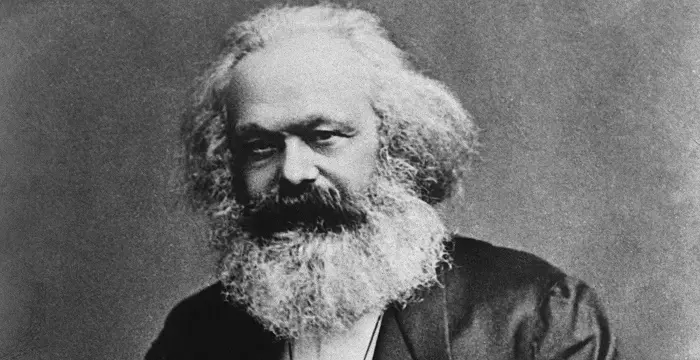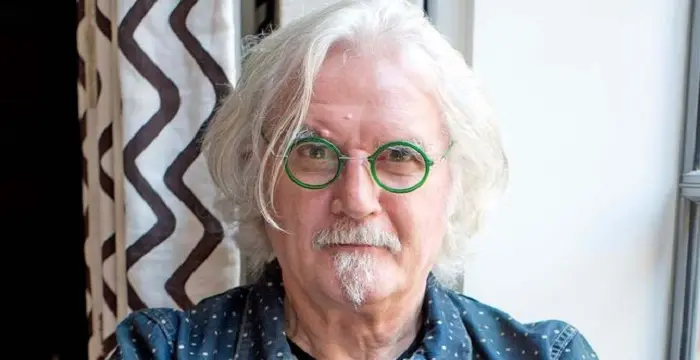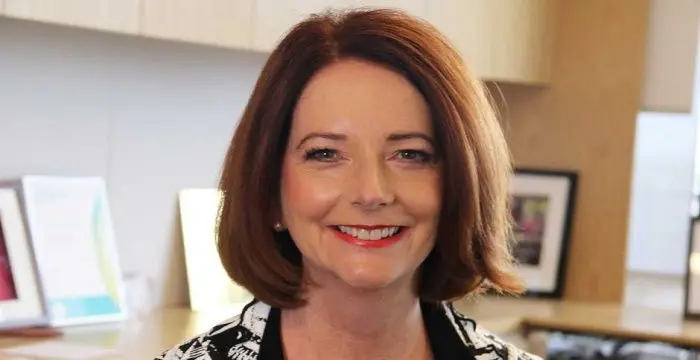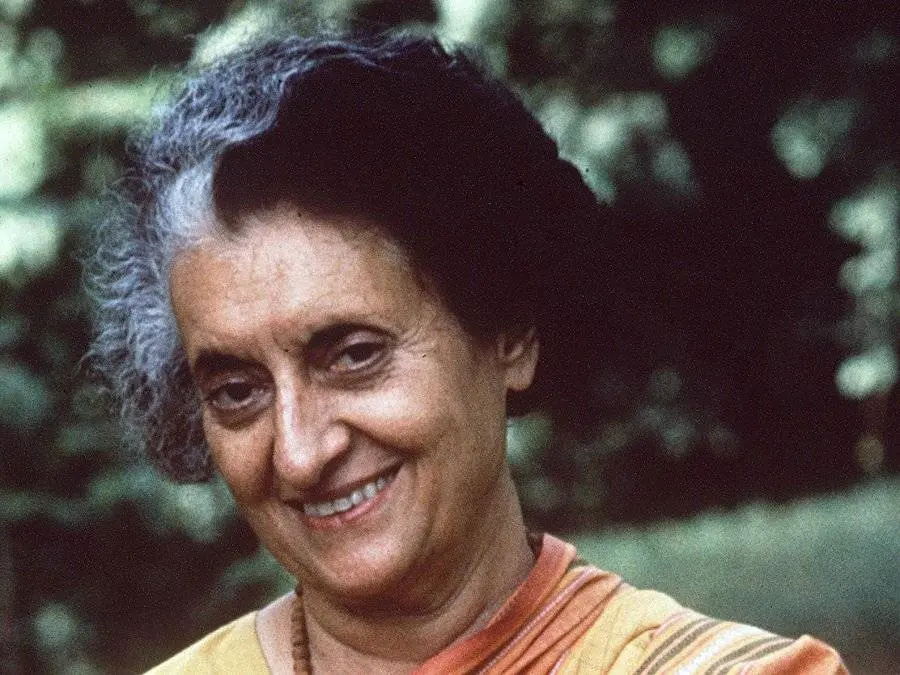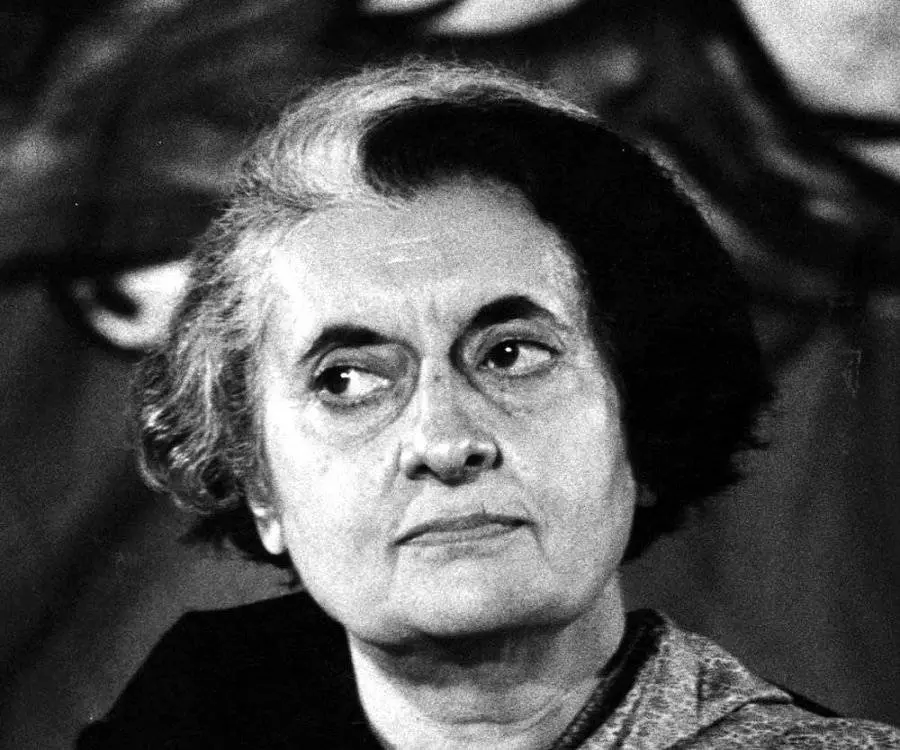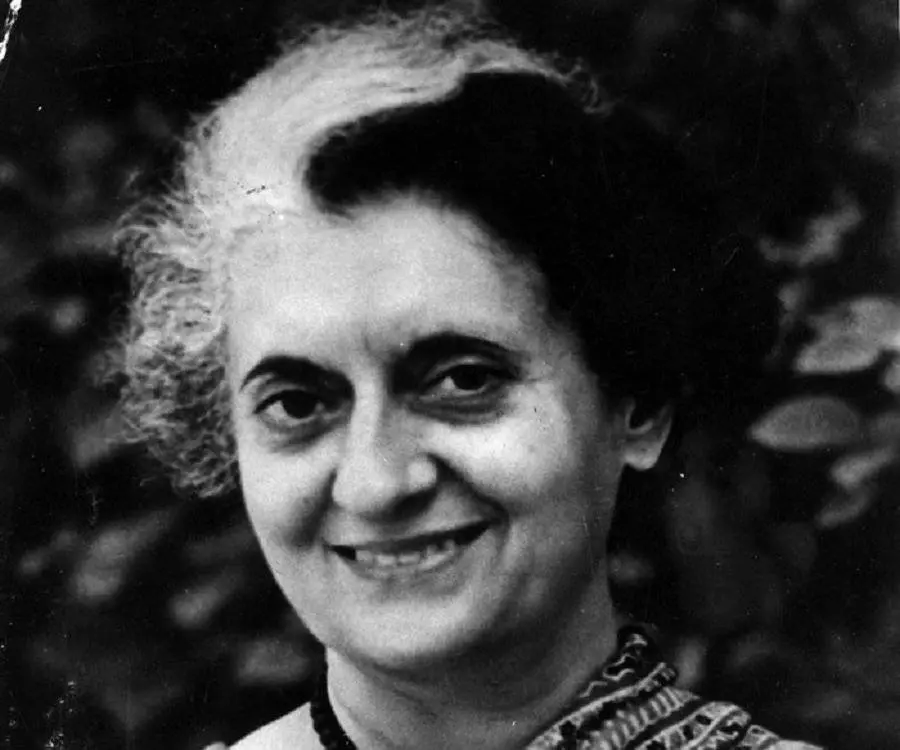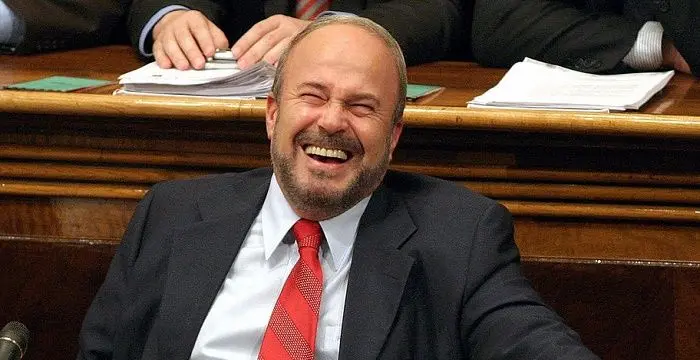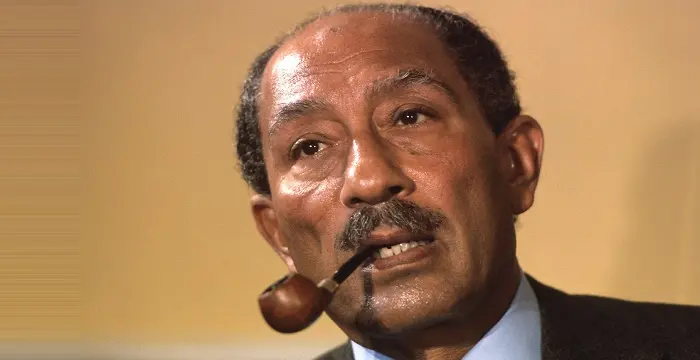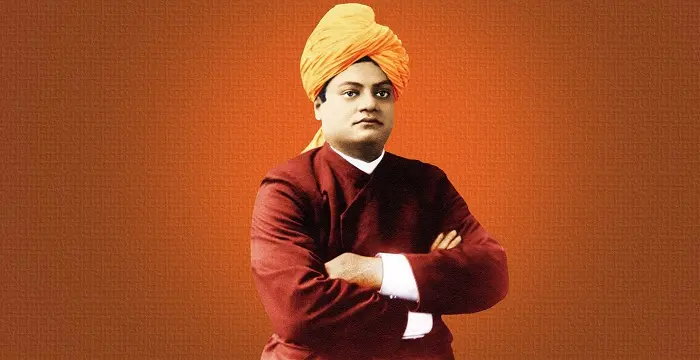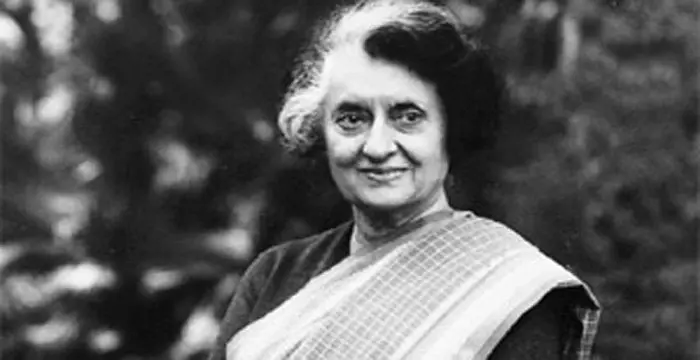
Indira Gandhi - Prime Ministers, Birthday and Life
Indira Gandhi's Personal Details
One of the strongest political leaders of Independent India, Indira Gandhi was the first woman to hold the office of the Prime Minister
| Information | Detail |
|---|---|
| Birthday | November 19, 1917 |
| Died on | October 31, 1984 |
| Nationality | Indian |
| Famous | Socialists, Oxford University, Leaders, Political Leaders, Prime Ministers |
| Ideologies | Socialists |
| Spouses | Feroze Gandhi (m. 1942–1960) |
| Childrens | Rajiv Gandhi |
| Universities |
|
| Notable Alumnis |
|
| Cause of death |
|
| Birth Place | Allahabad |
| Religion | Hindu |
| Gender | Female |
| Father | Jawaharlal Nehru |
| Mother | Kamala Nehru |
| Sun Sign | Scorpio |
| Born in | Allahabad |
| Died at Age | 66 |
// Famous Socialists
Karl Marx
Karl Marx was a Prussian-German philosopher, revolutionary, historian and socialist whose communist ideologies and works laid the foundation for ‘Marxism’. Explore this biography to learn more about his childhood, life achievements, works & timeline.
Billy Connolly
Billy Connolly is a Scottish actor, musician and stand-up comedian. Check out this biography to know about his childhood, family life, achievements and fun facts about his
Julia Gillard
Julia Gillard is a former Prime Minister of Australia and the first woman to hold the position. To know more about her childhood, career, profile and timeline read on
Indira Gandhi's photo
Who is Indira Gandhi?
Popularly known as the Iron Lady of India, Indira Gandhi earned a formidable reputation across the globe as a ‘statesman’. Her sheer sense of politics and exceptional skills catapulted her position in the Indian politics, so much so that she went on to become the first woman elected to head a democratic country. Till date, she is the only woman to hold the office. Born in a politically influential dynasty and growing in an intense political atmosphere, Indira Gandhi had learned the trick of the trade quite early in life. She possessed an authoritarian streak and became the central figure of the Indian National Congress party, post her father’s death. She was known for her political ruthlessness and extraordinary centralization of power. It was during her premiership that India became the regional power in South Asia with considerable political, economic, and military clout. She also presided over a state of emergency and made considerable changes to the Indian Constitution. She used the army to resolve numerous internal disputes and encouraged a culture of sycophancy and nepotism, due to which she rubbed many Indians on the wrong side. Gandhi initialized the Operation Blue Star, which gave her a critical reputation and eventually scripted her assassination.
// Famous Prime Ministers
Edi Rama
Edi Rama is the current Prime Minister of Albania. Check out this biography to know about his childhood, life, achievements, works & timeline.
Leo Varadkar
Cam Leo Varadkar is the current Taoiseach—the Prime Minister—of the Republic of Ireland. Check out this biography to know about his childhood, family life, achievements and other facts about his life.
Fatos Nano
Fatos Nano is an Albanian politician who served as Prime Minister of Albania for several times. Check out this biography to know about his childhood, life, achievements, works & timeline.
Childhood & Early Life
Born as Indira Nehru to Jawaharlal Nehru, independent India’s first Prime Minister, and Kamla Nehru, she was the only child of the couple, a younger brother dying in infancy.
Unlike others, her childhood wasn’t a happy one, as her father was mostly away from home due to his political commitments and her mother frequently suffered from bouts of illness.
She attained her preliminary education at home after which she briefly attended school to complete her matriculation. Indira was enrolled at the Viswa Bharti University in Calcutta but had to leave the same due to the ailing health of her mother in Europe.
Post the death of her mother, Indira attended the University of Oxford in Britain, where she studied history, political science and economics. However, due to her constant ill-health, she returned to India without a degree.
Political Pursuits
WAfter the death of her father in 1964, Indira Gandhi was appointed as a member of the Rajya Sabha. She also became one of the members of Lal Bahadur Shastri's cabinet, serving as the Minister of Information and Broadcasting.
The untimely death of Lal Bahadur Shastri saw numerous contenders for the position of the Prime Minister. However, unable to come to a single conclusion, Indira Gandhi was chosen as the compromised candidate as they thought her to be easily manageable. She became the Prime Minister of India in January 1966.
Indira Gandhi became the Prime Minister of India and continued to serve the same until 1977. As the Prime Minister, Indira Gandhi showed exceptional political skills and resolve and drove out many senior Congressmen out of the party and power. This led to internal dissent in the party, leading to a split in the Indian National Congress in 1969.
As Prime Minister
During her term as Prime Minister, Gandhi brought about a radical change in the country’s economic, political, international and national policies. She oversaw the implementation of over three Five-year plans - two of which were successful in meeting the targeted growth.
One of her crucial economic decisions included the nationalization of fourteen major commercial banks. The move proved to be fruitful as it improved the geographical coverage of banks with the number of branches rising from 8200 to 62000. Furthermore, the nationalization of banks increased household savings and saw investment in small and medium-sized enterprises and agricultural sector.
She then nationalized the coal, steel, copper, refining, cotton textiles, and insurance industries. The main aim of this move was to protect employment and secure the interest of the organised labor. As for the private sector industries, she brought them under strict regulatory control.
Gandhi even nationalized the oil companies after the 1971 war against Pakistan when India faced oil crises. With this, Indian Oil Corporation (IOC), the Hindustan Petroleum Corporation (HPCL) and the Bharat Petroleum Corporation (BPCL) were formed. The oil companies had to keep a minimum stock level of oil, to be supplied to the military at the time of need
It was during Gandhi’s premiership that Green Revolution brought remarkable change in the agricultural production in India. She changed the course of the nation - from an import dependent country, India could now manage a decent portion of its demands from domestic production. She mainly targeted at growth with stability and progressive achievement of self-reliance.
In 1971, Gandhi supported the East Pakistan in the Pakistan Civil War, which led to the formation of Bangladesh. This helped India bring the Himalayan states under the influence of the country. While Nepal and Bhutan remained aligned to India, Sikkim was incorporated as an Indian state in 1975, through a referendum.
Under the administrative policy of Gandhi, Meghalaya, Manipur, Tripura, Haryana, Punjab and Himachal Pradesh were given statehood. As for Chandigarh and Arunachal Pradesh, both were declared a union territory.
While Indira Gandhi shared strong ties with Soviet Union, her relationship with the US was a strained one. During her premiership, she also maintained close ties with Bangladesh but the same continued only until 1975. Post the assassination of Bangladesh Prime Minister, Shiekh Mujibur Rahman, the ties between India and Bangladesh soured.
During her term as the Prime Minister, Gandhi worked hard to normalize relations and reopen diplomatic establishments between India and Pakistan. Though Zulfikar Ali Bhutto had agreed for the same, the rise to power of General Zia-ul-Haq in Pakistan in 1978 caused an absolute downfall, marring all efforts of better relations.
Gandhi’s ties with the Southeast Asian countries were strained, due to her pro-Soviet tilt and ASEAN’s pro-American ties. However, the same was revived following Gandhi's endorsement of the ZOPFAN declaration and the disintegration of the SEATO alliance, but it did not do much to strengthen the ties.
Gandhi also brought social reforms by introducing clauses in the Indian Constitution related to wages - equal pay for equal work to both men and women.
State of Emergency & Loss at 1977 Elections
After the 1971 elections, the opposition parties accused her of using unlawful methods and electoral fraud to win the elections. Due to this, a case was filed in the Allahabad High Court which found Gandhi guilty of using state machinery for election campaign.
The court, on June 1975, declared the elections null and void and unseated Indira Gandhi from the Lok Sabha. Additionally, she was banned from contesting for the next six years.
These were trying times for India. The country was still recuperating from its war against Pakistan, and faced drought and oil crises. To add to the woes, the strikes and political protests affected the economy and created disorder across the country. To curb the same, Gandhi advised President Fakhruddin Ali Ahmed to declare a state of emergency.
The period of emergency in India lasted for 21 months, from June 1975 until March 1977. It bestowed on Gandhi the power to rule by decree, thereby suspending elections and all civil liberties. The entire country, including the states, came under the rule of the Central government.
During the emergency, all the publications were subjected to censorship by the Ministry of Information and Broadcasting. As such, no one could raise voice against the act of government.
Gandhi extended the state of emergency twice, before the elections of March 1977. The Janta Party, led by Moraji Desai and Jai Prakash Narayan appealed to the people that it was the last chance to choose between democracy and dictatorship.
The result of the election was not much of a surprise. The Congress party was defeated convincingly, winning just 153 seats. Both Indira Gandhi and her son Sanjay Gandhi lost their seats.
The Janta Party, led by Moraji Desai, ordered the arrest of Indira Gandhi and Sanjay Gandhi on charges of planning to kill the opposition leaders during emergency. The move, however, proved to be futile as none of the charges were proved. What’s more, Indira Gandhi gained sympathy from the people.
The Janta Party leaders had little in common except for their united hatred towards Indira Gandhi. As such, the government did not function well. The division in the Janta Party resulted into Desai’s stepping down and Charan Singh being appointed the new Prime Minister. However, this also did not work for long and the Parliament was dissolved in the winter session of 1979 and election was announced in 1980.
Second Term as Prime Minister
Most of the second term of the premiership of Indira Gandhi was spent resolving the political problems of Punjab. A secessionist movement had been initiated by Jarnail Singh Bindranwale, who along with his troops had found base at the Golden Temple, the sacred place of worship for the Sikhs.
Bindrawale, along with his supporters, had started a campaign against the government, moderate Sikhs and Hindus.
To curb his growth to power, Gandhi commenced Operation Blue Star. The main aim of the Operation was to strip clean the Golden Temple from the terrorists and subdue Bindrawale and his men. Operation Bluestar successfully subdued Bhindarwale and his team but several civilians lost their lives and the shrine was ruefully damaged. Due to this, Gandhi earned the hatred of Sikhs who declared Bindrawale a martyr of the 21st century.
Personal Life & Legacy
Indira Nehru and Feroze Gandhi knew each other since childhood - this acquaintance slowly matured into a relationship when both of them were in the UK for their studies. They got married in March 1942 and were later blessed with two sons - Rajiv Gandhi and Sanjay Gandhi.
Operation Blue Star changed her life as two of her Sikh bodyguards, deeply hurt by the insult heaped upon the Sikh nation, shot her to death, in order to avenge the insult.
Though Gandhi was taken to the All India Institute of Medical Sciences and was operated upon, she failed to survive and was declared dead. She was cremated near Raj Ghat - the spot is now known as Shakti Sthala. Her funeral was televised live on numerous domestic and international channels.
In an attempt to honor and pay tribute to the great political leader, the central government launched the low-cost housing programme for the rural poor under her name, Indira Awaas Yojana.
The international airport at New Delhi is named Indira Gandhi International Airport in her honour. She also has one of the largest universities in the world, Indira Gandhi National Open University, named after her.
An annual award for National Integration, Indira Gandhi Award was conceptualized and established by the Indian National Congress in 1985.
She was voted as the greatest Indian Prime Minister in a poll organised by India Today. She was also named ‘Woman of the Millennium’ in a poll organised by the BBC in 1999.
The University of Oxford conferred Gandhi with an honorary degree. It also selected her as one of the ten Oxasians, illustrious Asian graduates from the University of Oxford.
The Government of Bangladesh bestowed upon Gandhi its highest state award for her ‘outstanding contribution’ to the country's independence.
Trivia
She imposed a State of Emergency in India in June 1975, which lasted for 21 months until March 1975. She ruled by decree during Emergency and brought the entire country under the rule of the Central government.
She initiated the Operation Blue Star to strip clean the Golden Temple from the terrorists supporting Bindranwale. It eventually led to her assassination.
Top 10 Facts You Did Not Know About Indira Gandhi
As a young girl she played her part in India’s struggle for freedom by forming a “Monkey Brigade” who spied on police and distributed flags.
She was imprisoned for 13 months in 1942 by the British for her part in nationalist political demonstrations against British rule.
Her father Jawaharlal Nehru was strongly opposed to her choice of a husband, but she bravely faced all the opposition to marry Feroze Gandhi.
Contrary to the popular perception, there is absolutely no relation between Mahatma Gandhi and Indira Gandhi.
It is said that Indira Gandhi had many love affairs during her lifetime. Katherine Frank in her book ‘The Life of Indira Nehru Gandhi’ mentions that Indira’s first love was with her German teacher at Shantiniketan. Later she had affair with M. O. Mathai (Jawaharlal Nehru's secretary), then Dhirendra Brahmachari (her yoga teacher) and at last with Dinesh Singh, a Congress leaders who later on served as the Foreign Minister of India.
Indira Gandhi was elected Congress President in 1959, when her father was the Prime Minister.
She was the second female head of government in the world after Sirimavo Bandaranaike of Sri Lanka.
The Palestinian leader Yaseer Arafat with whom she had friendly relations, cried bitterly at her funeral.
Indira Gandhi’s last rites were attended by top Bollywood stars Raj Kapoor, Sunil Dutt and Amitabh Bachchan.
She was honored with the highest award in Bangladesh—the Bangladesh Swadhinata Sammanona (Bangladesh Freedom Honour)—posthumously in 2011.
// Famous Political Leaders
Edi Rama
Edi Rama is the current Prime Minister of Albania. Check out this biography to know about his childhood, life, achievements, works & timeline.
Khalifa bin Zayed Al Nahyan
Sheikh Khalifa bin Zayed Al Nahyan is the current President of the United Arab Emirates (UAE). Check out this biography to know about his birthday, childhood, family life, achievements and fun facts about him.
Leo Varadkar
Cam Leo Varadkar is the current Taoiseach—the Prime Minister—of the Republic of Ireland. Check out this biography to know about his childhood, family life, achievements and other facts about his life.
Indira Gandhi's awards
| Year | Name | Award |
|---|---|---|
Other | ||
| 0 | 1971 - Bharat Ratna | |
| 0 | - Jawaharlal Nehru Award | |
| 0 | - Lenin Peace Prize | |
Indira Gandhi biography timelines
- // 19th Nov 1917Born as Indira Nehru to Jawaharlal Nehru, independent India’s first Prime Minister, and Kamla Nehru, she was the only child of the couple, a younger brother dying in infancy.
- // Mar 1942Indira Nehru and Feroze Gandhi knew each other since childhood - this acquaintance slowly matured into a relationship when both of them were in the UK for their studies. They got married in March 1942 and were later blessed with two sons - Rajiv Gandhi and Sanjay Gandhi.
- // 1964WAfter the death of her father in 1964, Indira Gandhi was appointed as a member of the Rajya Sabha. She also became one of the members of Lal Bahadur Shastri's cabinet, serving as the Minister of Information and Broadcasting.
- // 1966 To 1969Indira Gandhi became the Prime Minister of India and continued to serve the same until 1977. As the Prime Minister, Indira Gandhi showed exceptional political skills and resolve and drove out many senior Congressmen out of the party and power. This led to internal dissent in the party, leading to a split in the Indian National Congress in 1969.
- // 1966 To 1978During her term as the Prime Minister, Gandhi worked hard to normalize relations and reopen diplomatic establishments between India and Pakistan. Though Zulfikar Ali Bhutto had agreed for the same, the rise to power of General Zia-ul-Haq in Pakistan in 1978 caused an absolute downfall, marring all efforts of better relations.
- // 24th Jan 1966The untimely death of Lal Bahadur Shastri saw numerous contenders for the position of the Prime Minister. However, unable to come to a single conclusion, Indira Gandhi was chosen as the compromised candidate as they thought her to be easily manageable. She became the Prime Minister of India in January 1966.
- // 1971 To 1975In 1971, Gandhi supported the East Pakistan in the Pakistan Civil War, which led to the formation of Bangladesh. This helped India bring the Himalayan states under the influence of the country. While Nepal and Bhutan remained aligned to India, Sikkim was incorporated as an Indian state in 1975, through a referendum.
- // 1971After the 1971 elections, the opposition parties accused her of using unlawful methods and electoral fraud to win the elections. Due to this, a case was filed in the Allahabad High Court which found Gandhi guilty of using state machinery for election campaign.
- // Jun 1975The court, on June 1975, declared the elections null and void and unseated Indira Gandhi from the Lok Sabha. Additionally, she was banned from contesting for the next six years.
- // Jun 1975 To Mar 1977The period of emergency in India lasted for 21 months, from June 1975 until March 1977. It bestowed on Gandhi the power to rule by decree, thereby suspending elections and all civil liberties. The entire country, including the states, came under the rule of the Central government.
- // Jun 1975 To Mar 1977She imposed a State of Emergency in India in June 1975, which lasted for 21 months until March 1975. She ruled by decree during Emergency and brought the entire country under the rule of the Central government.
- // 1977The result of the election was not much of a surprise. The Congress party was defeated convincingly, winning just 153 seats. Both Indira Gandhi and her son Sanjay Gandhi lost their seats.
- // Mar 1977Gandhi extended the state of emergency twice, before the elections of March 1977. The Janta Party, led by Moraji Desai and Jai Prakash Narayan appealed to the people that it was the last chance to choose between democracy and dictatorship.
- // 1979 To 1980The Janta Party leaders had little in common except for their united hatred towards Indira Gandhi. As such, the government did not function well. The division in the Janta Party resulted into Desai’s stepping down and Charan Singh being appointed the new Prime Minister. However, this also did not work for long and the Parliament was dissolved in the winter session of 1979 and election was announced in 1980.
- // 1980Most of the second term of the premiership of Indira Gandhi was spent resolving the political problems of Punjab. A secessionist movement had been initiated by Jarnail Singh Bindranwale, who along with his troops had found base at the Golden Temple, the sacred place of worship for the Sikhs.
- // 1st Jun 1984 To 10th Jun 1984To curb his growth to power, Gandhi commenced Operation Blue Star. The main aim of the Operation was to strip clean the Golden Temple from the terrorists and subdue Bindrawale and his men. Operation Bluestar successfully subdued Bhindarwale and his team but several civilians lost their lives and the shrine was ruefully damaged. Due to this, Gandhi earned the hatred of Sikhs who declared Bindrawale a martyr of the 21st century.
- // 31st Oct 1984Though Gandhi was taken to the All India Institute of Medical Sciences and was operated upon, she failed to survive and was declared dead. She was cremated near Raj Ghat - the spot is now known as Shakti Sthala. Her funeral was televised live on numerous domestic and international channels.
- // 1999She was voted as the greatest Indian Prime Minister in a poll organised by India Today. She was also named ‘Woman of the Millennium’ in a poll organised by the BBC in 1999.
// Famous Leaders
Edi Rama
Edi Rama is the current Prime Minister of Albania. Check out this biography to know about his childhood, life, achievements, works & timeline.
Tecumseh
Tecumseh was a Native American leader of the Shawnee clan. This biography profiles his childhood, life and timeline.
Khalifa bin Zayed Al Nahyan
Sheikh Khalifa bin Zayed Al Nahyan is the current President of the United Arab Emirates (UAE). Check out this biography to know about his birthday, childhood, family life, achievements and fun facts about him.
Anwar Sadat
Anwar Sadat was the third President of Egypt and has been awarded the Nobel Prize for his peace initiatives. To know more about his childhood, career, profile and timeline read on the following biography.
Leo Varadkar
Cam Leo Varadkar is the current Taoiseach—the Prime Minister—of the Republic of Ireland. Check out this biography to know about his childhood, family life, achievements and other facts about his life.
Swami Vivekananda
Swami Vivekananda was the chief disciple of Sri Ramakrishna, and was responsible for awakening India spiritually. Check this biography to know in detail about his life, profile and timeline.
Indira Gandhi's FAQ
What is Indira Gandhi birthday?
Indira Gandhi was born at 1917-11-19
When was Indira Gandhi died?
Indira Gandhi was died at 1984-10-31
Where was Indira Gandhi died?
Indira Gandhi was died in New Delhi
Which age was Indira Gandhi died?
Indira Gandhi was died at age 66
Where is Indira Gandhi's birth place?
Indira Gandhi was born in Allahabad
What is Indira Gandhi nationalities?
Indira Gandhi's nationalities is Indian
What is Indira Gandhi ideologies?
Indira Gandhi's ideologies is Socialists
Who is Indira Gandhi spouses?
Indira Gandhi's spouses is Feroze Gandhi (m. 1942–1960)
Who is Indira Gandhi childrens?
Indira Gandhi's childrens is Rajiv Gandhi
What was Indira Gandhi universities?
Indira Gandhi studied at Oxford University, University of Oxford, Badminton School, Somerville College, Oxford, Visva-Bharati University
What was Indira Gandhi notable alumnis?
Indira Gandhi's notable alumnis is Oxford University
What is Indira Gandhi's cause of dead?
Indira Gandhi dead because of Assassination
What is Indira Gandhi's religion?
Indira Gandhi's religion is Hindu
Who is Indira Gandhi's father?
Indira Gandhi's father is Jawaharlal Nehru
Who is Indira Gandhi's mother?
Indira Gandhi's mother is Kamala Nehru
What is Indira Gandhi's sun sign?
Indira Gandhi is Scorpio
